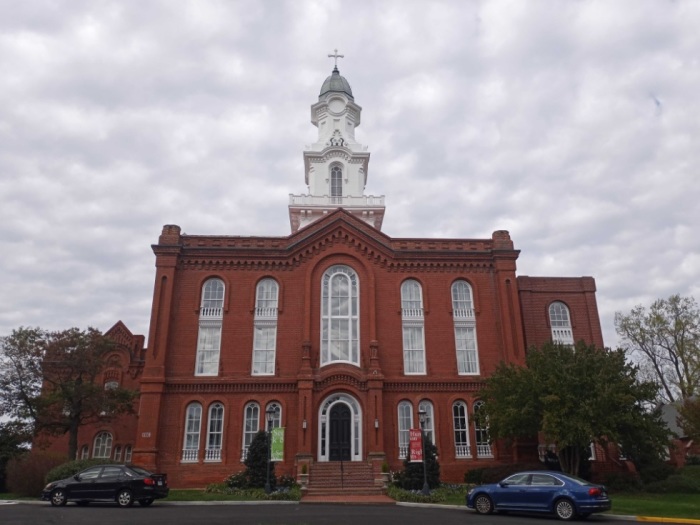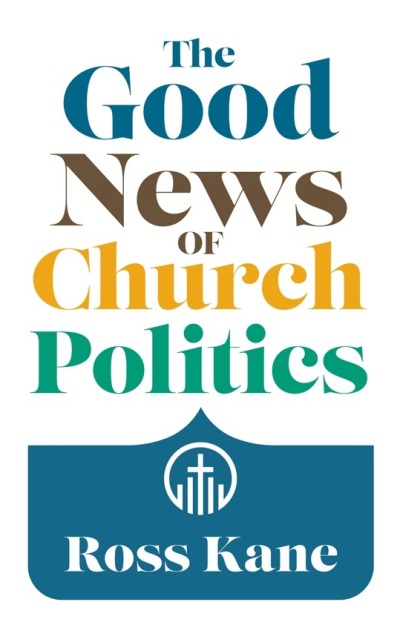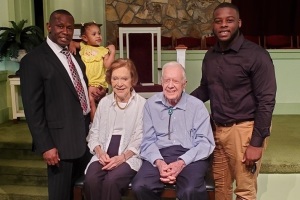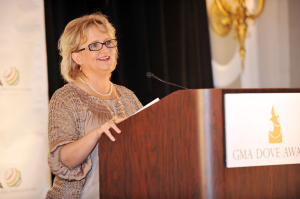Episcopal professor hopes to ‘reorient’ how churches deal with politics

An Episcopal pastor and professor is hoping to influence how congregations handle politics by showing that political action is integral to Christian belief and practice.
The Rev. Ross Kane, an associate professor of theology, ethics and culture at Virginia Theological Seminary, has released a new book on the topic, titled The Good News of Church Politics.
In an interview with The Christian Post, Kane said he wrote the book “because it seemed to me that so much talk about Christianity and politics was all at a national and state level,” which has “often led us into some very conflictual situation.”
“It’s not that politics shouldn't be conflictual, sometimes it is,” he said. “But if we started in a different place, if we start in our congregations and realize that our congregations are actually political things, then we can start to build habits and practices for faithful politics that really follow Jesus and build communities that love our neighbors, and that can be the start of reorienting how we think about politics in the church.”
In his interview with CP, Kane spoke about how congregational life is akin to political life, and some of the hazards of trying to separate religion and politics.

CP: You mentioned the many political aspects found in church life, like passages in the Bible, hymn lyrics, and even worship liturgy. Would it be fair to say, technically, that there is no such thing as a non-political church?
Kane: I would say that.
Any pastor who has served even the tiniest congregation knows that it does feel like being the mayor of a small town. You have these multiple constituencies that you're dealing with and politics, very broadly conceived, is really about how human beings organize ourselves, how we make decisions, how we sort out community life. And congregations have all of those things. And you know, this is really clear in Scripture and in tradition and in our worship.
Even the word for church, ekklēsia, in the Greek was a term that was used for a town assembly, and the church retooled the word. The Church knew what it was doing. The early Church didn't naively take on that word for describing ourselves. We are an assembly that has a public function.
If we can reclaim that perspective and that, again, gives us a whole new way of looking at politics as something that starts with loving our neighbors.
CP: In your book, you warned that while "institutional separation between church and state is healthy," sometimes people take the idea too far and treat religion and politics as "competitive." Where have you seen an overzealousness on separating religion and politics?
Kane: We can see separating religion and politics as going too far in this, where people will say that our religious convictions should play no role in how we engage the public square. The idea that the public square should be an utterly areligious environment.
Whatever one's national politics are, I think we can at least accept that we bring our deeply held values to the public square and for those of us who follow Jesus, those are religious Christian values and they do have a place in the public square.
If there's no religion in the public square, you don't get people like Martin Luther King Jr.
CP: In Chapter 11, you talked about churches confronting their sins and failures, with a big focus on churches that have a history of white supremacy. In recent years, numerous American churches and Christian schools from diverse denominational backgrounds have openly addressed their historical ties to slavery and segregation. What is your opinion of these overall developments?
Kane: I'm encouraged by these developments.
I believe that we don't work through sin and past sins by pretending they didn't happen. We have to look at them squarely in the eye. The seminary that I work for, Virginia Theological Seminary, in 2019, began a reparations program and that has been transformative for our seminary.
It was one of the first programs that gave financial disbursement to the descendants of enslaved people who helped build the campus or who worked here during the Jim Crow era, and that is a way of trying to address some of these wrongs and I should say, too, it's also changed the culture of our seminary.
We now have deeper relationships with the descendants of the folks who worked here during Jim Crow and descendants of enslaved people who built our campus. And that has led to some really profound and meaningful relationships that have gone a long way in healing some of these past wrongs.
CP: In the book, you talked about how churches involved in national politics need to be well-grounded in local politics first. What are some of the benefits that come to a church that focuses on local politics before national politics?
Kane: The first thing I'd say is that it gives a rootedness to the political engagement. It's a rootedness that's grounded in congregations' own commitment to following Jesus' commandment "love your neighbor." And that rootedness has another effect, too, which is that it gives churches more clarity about when they might be being manipulated for partisan purposes.
If a congregation already is engaged in the public life of its neighborhood, it knows the partisan dynamics of the city and it actually can go in with eyes wide open when it comes to partisan politics, instead of just being sucked in to the temptations of power that so often come with partisan politics.
CP: What do you hope readers take away from your book?
Kane: I hope that readers take away hope. I hope the readers get hope from this book.
Hope that politics can be about more than just the will to power or the struggle for control. Politics is about our interdependence and how our lives are connected to one another in similar ways that Jesus talks about, vine and branches being connected to one another and then being connected to the vine, which is Christ Himself. Or the way that the Apostle Paul talks about a body with many parts that are functioning.
We need each other to follow Jesus and live a faithful public life and our congregations can be central to that public engagement.
My desire is that it’s a hopeful book that gives practical tools for loving our neighbors more faithfully.




























